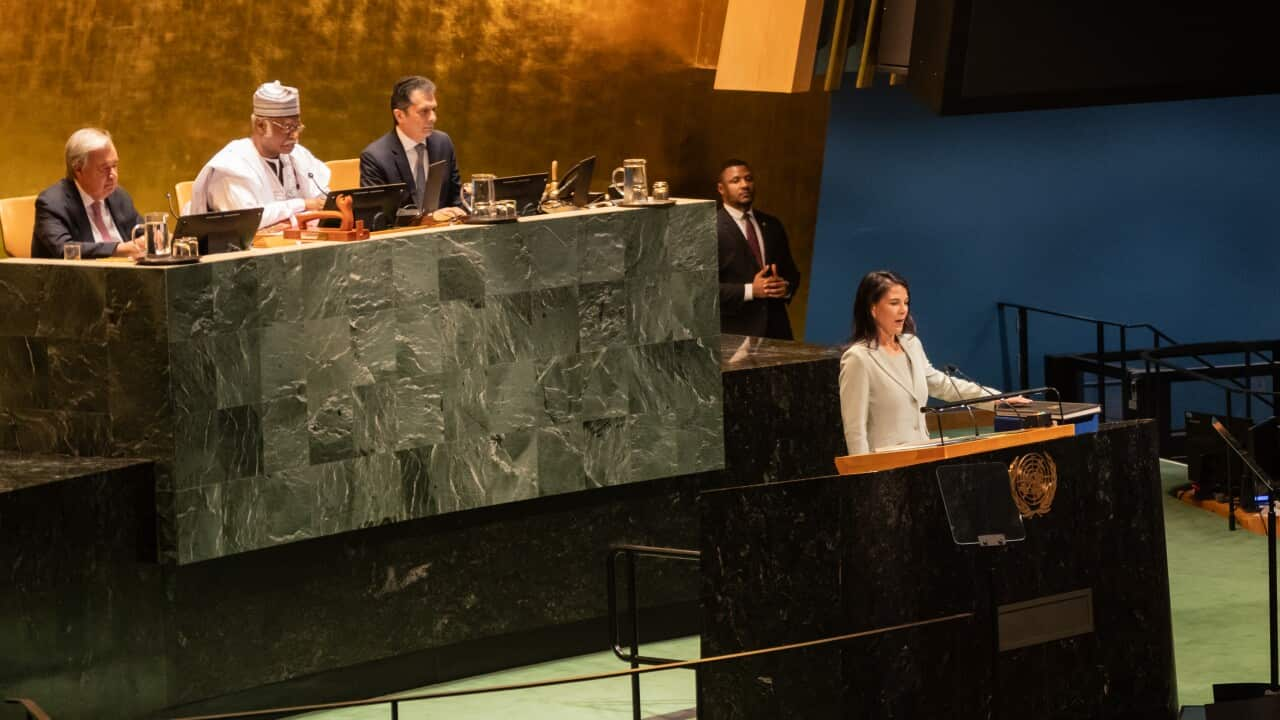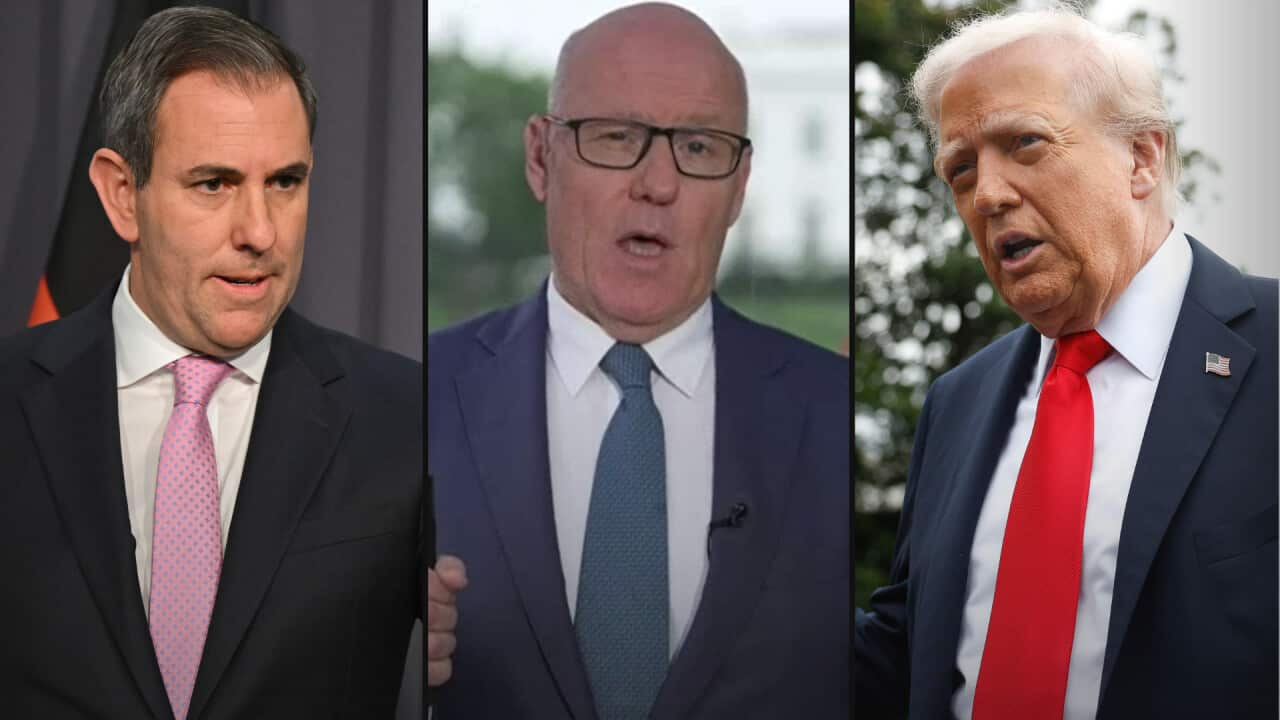TRANSCRIPT:
New South Wales is being urged to follow up on its historic L-G-B-T-I-Q plus apology with more action.
A statement signed by 29 community organisations has been tabled in state parliament along with the apology.
The statement calls for MPs to resolve the "unfinished business" of our time.
The only openly gay member of the state's lower house, Alex Greenwich, says the government needs to do better by the community.
"My message to my colleagues today will be the same message as the LGBT community had 40 years ago. Get out of our bedrooms, get out of our pants, and let us live our lives. Forty years ago, New South Wales decriminalised homosexuality. Forty years later, we are still last in the nation when it comes to LGBTQ rights."
.
Many Australians appear to be worried artificial intelligence could be used to mislead voters in elections.
Four in five voters want deepfakes to be banned from political advertising, according to a survey by tech giant Adobe.
The survey has also found that respondents struggle to identify misinformation.
Almost one in three have reduced their time on social media to avoid being deceived.
.
It has been revealed more than one student has been expelled from the Australian National University since the start of the Israel Hamas war in October.
The university's vice chancellor, Genevieve Bell, has told an estimates hearing ten students have had disciplinary proceedings against them and two have been excluded from campus.
Four incidents have been referred to the Australian Federal Police for further investigation.
Ms Bell says the university wants students to express their views in a respectful and appropriate way.
"Our commitment to the classic ideal of the university, academic rigour, free inquiry, and free expression, and the right to protest is not without its challenges. Our campus is one of several in Australia and many more across the world that have seen protest activity in recent times reflecting on the conflict in the Middle East. Throughout this period and EU has acknowledged the rights enshrined in the university's policies on academic freedom and freedom of speech."
.
Nine chairman Peter Costello says he did not strike a journalist at Canberra airport on Thursday afternoon.
Footage posted on The Australian's website shows their reporter Liam Mendes asking Mr Costello about recent harassment allegations at Nine.
Mr Costello appears to approach the journalist, who then falls backwards, saying, "you have just assaulted me... You have just pushed me; it's all on camera."
When asked about what took place, Mr Costello told journalists in the corridors of Parliament House that he did not lay a finger on him.
"When I came through Canberra airport, there was a reporter walking backwards, with his phone, filming. As I walked past him, he walked--backed into an advertising placard and he fell over. I did not strike him. If he's upset about that, I'm sorry. But I did not strike him."
.
The State Emergency Service has carried out almost 50 rescues so far, as New South Wales continues to be hit by heavy rain.
They've responded to 447 incidents overall.
A surface trough near the NSW coast has been generating heavy rainfall.
But forecasters say the rain should begin to ease on Friday afternoon.
.
Crossbench senators have criticised Australia's future strategy for gas, saying it misrepresents the views of traditional owners.
Samuel Sandy, chair of the Nurrdalinji Aboriginal Corporation, has told The Guardian parts of its submission had been put into the published gas strategy.
But Sandy says that it was "wrong and upsetting" because the organisation supported more solar energy, not fracking for gas.
.
A team of medical researchers have found a way to identify dementia up to nine years before an official diagnosis is made.
Led by a professor at Melbourne's Monash University, the team have developed a test that they say can predict dementia with over 80 per cent accuracy when the disease is in its early stages.
Co-author, Associate Professor Adeel Razi, says the test could pave the way for proactive healthcare strategies.
He says previous attempts at curing Alzheimer's have failed because clinical trials often focused on advanced stages of the disease, where the damage to brain cells was irreversible.










